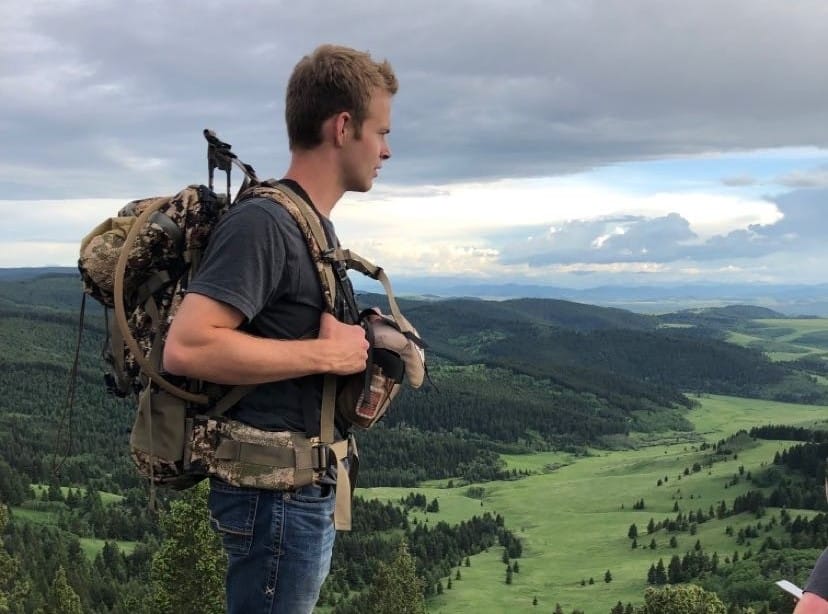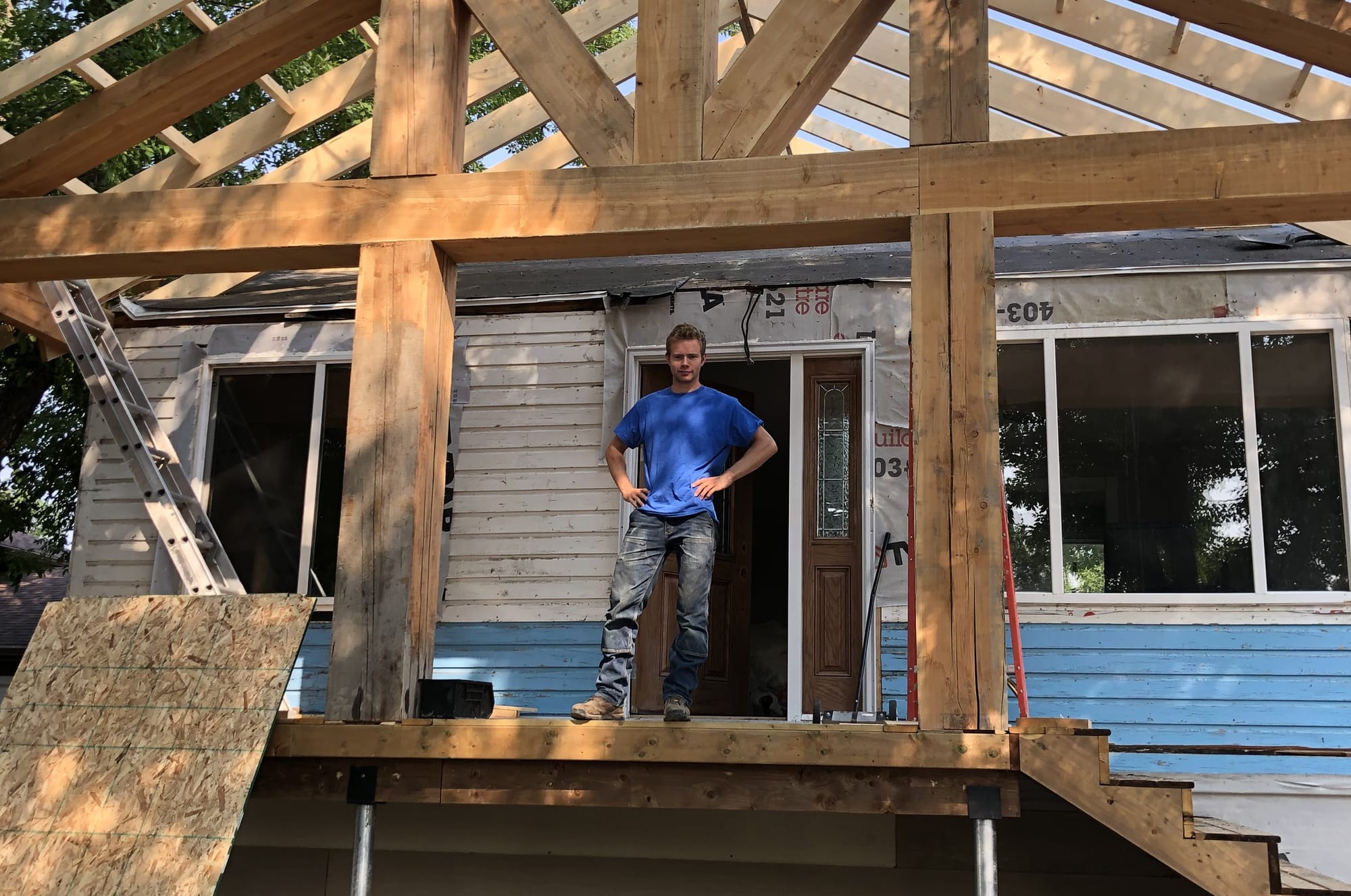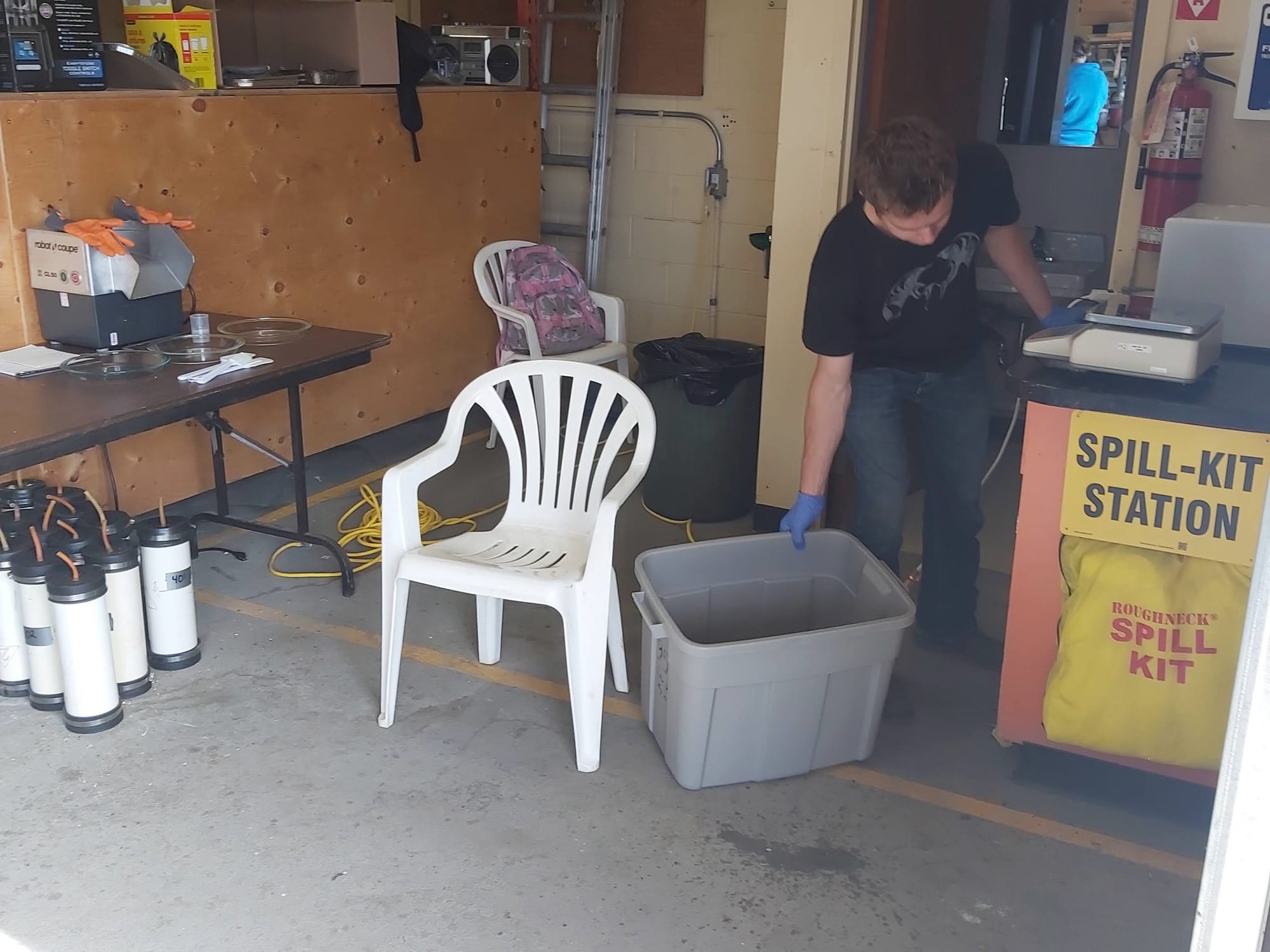Layton VandeStroet's academic journey at the University of Lethbridge has been marked by impactful experiential learning, engaging in independent studies on topics ranging from toxic alkaloids in grain feed to E. coli growth. Although he chose ULethbridge for its proximity to his hometown and the unique agricultural biotechnology program that aligned with his interests and vet school prerequisites, he has discovered so much more.
My professors have impacted my education tremendously. Having an engaged professor has far-reaching effects on your learning, and sometimes even past your learning. It makes the difference between simply having a degree, and also a set of applicable knowledge and problem-solving skills.
Meet Layton | Ambitious. Determined. Innovator.
Program: Bachelor of Science | Major: Agricultural Biotechnology
Hometown: Picture Butte, AB
Why did you choose ULethbridge?
I chose ULethbridge because of the proximity to my hometown and because the agricultural biotechnology program satisfied both my interests and the prerequisites for vet school. As I went further into my studies, I realized how lucky I was with my choice, as the learning opportunities for undergraduate students are phenomenal.
Did you know what you wanted to study before you came to ULethbridge? Has your academic plan changed since you began your studies?
I always knew I wanted to study the sciences and use my studies to work towards vet school. My academic plan has changed very little, although my interest in various disciplines has only increased.
Please tell us a bit about your experiential or work-integrated learning. What were your three biggest takeaways from participating?
I have taken three independent studies under Dr. Kim Stanford. The first study involved doing lab work in a larger project where manipulations to toxic ergot alkaloids in grain feed were studied for their effect on steers. I went on to do some part-time summer research, developing methods to ensile food waste from large wholesales as animal feed. My favourite part of that study was the problem-solving and the multiple different analyses we did on the ensiled feed. I went on to do a further independent study on this research, doing more background research and writing a paper, as well as presenting at the Spring 2023 Luke Stebbins symposium, which showcased how diverse these studies can be. I am currently working on another independent study with Dr. Stanford, where I will be looking at growth of O157:H7 E. coli, and evaluating various virulence profiles.
My three takeaways:
- You get what you put in. Focus on your studies or your learning will be compromised.
- The importance of the design of your research project. Designing it well is key to getting the results you want. Re-doing this is a lot of work.
- The lab environment is a collaborative environment. Everyone has their specialties, and you can learn from everyone.
What is your most memorable ULethbridge experience so far?
My most memorable ULethbridge experience so far is the Luke Stebbins symposium. It was invigorating and inspired me to dive deeper into research.
How have your professors impacted your education?
My professors have impacted my education tremendously. Having an engaged professor has far-reaching effects on your learning, and sometimes even past your learning. It makes the difference between simply having a degree and also a set of applicable knowledge and problem-solving skills.
Dr. Randall Barley has had a great influence on how I approach biology questions. He is a very engaging lecturer who provides a deep understanding of biology by "demystifying the black box." This has helped me a lot in all of my studies.
Dr. Danny Le Roy has been an amazing professor, not only teaching fundamentals of economics until they are readily applicable to everyday scenarios but also being engaged and helpful in my studies and journey to vet school.
Dr. Kim Stanford has had a pivotal effect on my education by unlocking the world of research for me. This has been very helpful in applying my studies to real-world scenarios and has opened up many more opportunities for me.
I believe that Layton really exemplifies what it means to "Shine" @ ULethbridge because, in addition to maintaining a very impressive GPA, he's also taken every opportunity to engage in demanding novel undergraduate research projects across campus. – Randall Barley, Department of Biological Sciences
Have you received any scholarships and awards?
I have been blessed to receive quite a few scholarships. They have allowed me to go through my studies without having to worry about how they would be paid and instead let me focus on my education.
I want to thank all my donors for allowing me to focus on learning, and I hope that I will be able to use their gifts to effect positive change in the fields they were also passionate about. I am especially thankful for the Alan and Grace Hamilton Scholarship and the Alex and Norrie MacMillan Agricultural Scholarship, as they have generously helped me out numerous times already.
What do you like to do in your free time?
I like to work on the farm, hunt, fish, and spend time in the outdoors. I am also a volunteer firefighter, which is one of the most rewarding and exciting things I have ever done.



Photos submitted by Layton.
What are your hopes/plans for the future?
I hope to enter vet school and focus on animal health production. I hope that as a veterinarian, I can have a positive effect on the livestock industry in southern Alberta.
What advice would you like to give those about to begin their journey at ULethbridge?
Focus on the learning. Integrate concepts to become a problem solver, and you will come out of university with useful skills applicable to any situation later on in your career. Having a good study buddy is useful in both your learning and making your learning enjoyable.
Quick Answers
Favourite class: Cell Signalling
Favourite place to study: Library
- Apply
- Find admission details
- Request info
- Talk to a recruiter
- Book a tour
- Take a virtual campus tour